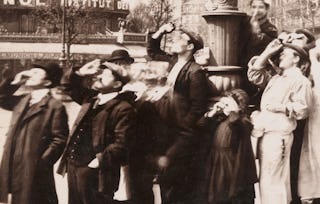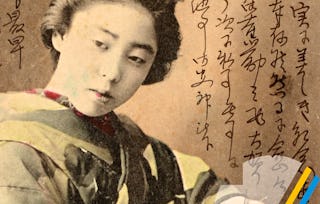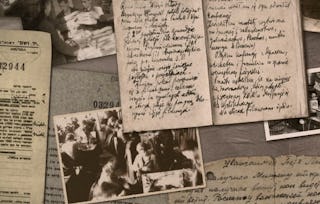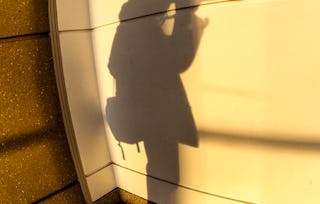This course is a short taster on the topic of the use of Images, Film, and their use in historical interpretation in the 20th century. It is primarily provided for those who have a general interest in history that draws on photojournalism as primary evidence, and films based on historical events.


Film, Images & Historical Interpretation in the 20th Century: The Camera Never Lies
Ends soon: Gain next-level skills with Coursera Plus for $199 (regularly $399). Save now.


Film, Images & Historical Interpretation in the 20th Century: The Camera Never Lies


Instructors: Dr Emmett Sullivan
52,710 already enrolled
Included with
(394 reviews)
Skills you'll gain
Details to know

Add to your LinkedIn profile
See how employees at top companies are mastering in-demand skills

There are 6 modules in this course
We will explore the issues associated with the use of images as a source for historical research and consider a number of examples where image manipulation has been uncovered
What's included
7 videos8 readings1 assignment1 discussion prompt
We will review a number of cases studies where images have either shaped our opinion of events or have been suppressed from the public at the time, to avoid adverse or negative reaction.
What's included
8 videos6 readings1 assignment2 discussion prompts
The cause célèbre' of historical manipulation - Joseph Stalin. The 'air brushing' of historical records, and in this case the literal airbrushing of Soviet images in the 1930s and 1940s
What's included
10 videos4 readings1 assignment2 discussion prompts
With respect to Reportage and the use of images as a evidential record, should we condemn Stalin in the last 20th and early 21th century? We use an example from 1993 to illustrate this point.
What's included
12 videos11 readings1 assignment1 peer review3 discussion prompts
The photograph of the raising of the flag at Mt. Suribachi was a Pulitzer Prize winning image, and the base of the film 'The Flag of our Fathers'. We will explore the use of the still and the motion picture to influence our opinion.
What's included
11 videos8 readings1 assignment2 discussion prompts
What is 'Public History'? How do photographs and films with an historical theme shape our awareness of historical events and our memories?
What's included
8 videos2 readings1 assignment1 peer review
Instructors


Explore more from History
 Status: Free Trial
Status: Free TrialThe Museum of Modern Art
 Status: Preview
Status: PreviewThe University of Tokyo
 Status: Free
Status: Free Status: Free Trial
Status: Free TrialMichigan State University
Why people choose Coursera for their career




Learner reviews
394 reviews
- 5 stars
69.28%
- 4 stars
23.60%
- 3 stars
4.06%
- 2 stars
1.01%
- 1 star
2.03%
Showing 3 of 394
Reviewed on Dec 29, 2021
The course, it enabled me to develop a sharper understanding of photographs and films as public history. I really enjoyed the peer graded assignments.
Reviewed on Jan 11, 2022
This course is informative and important source of historical facts, videos, documents and interviews - I was expressed and inspired to know more about these events and people. Thank you.
Reviewed on Mar 23, 2021
An informative course that made me think about the use of images in everything from newspapers to propaganda shorts to history books. Would highly recommend.
Frequently asked questions
To access the course materials, assignments and to earn a Certificate, you will need to purchase the Certificate experience when you enroll in a course. You can try a Free Trial instead, or apply for Financial Aid. The course may offer 'Full Course, No Certificate' instead. This option lets you see all course materials, submit required assessments, and get a final grade. This also means that you will not be able to purchase a Certificate experience.
When you purchase a Certificate you get access to all course materials, including graded assignments. Upon completing the course, your electronic Certificate will be added to your Accomplishments page - from there, you can print your Certificate or add it to your LinkedIn profile.
Yes. In select learning programs, you can apply for financial aid or a scholarship if you can’t afford the enrollment fee. If fin aid or scholarship is available for your learning program selection, you’ll find a link to apply on the description page.
More questions
Financial aid available,
¹ Some assignments in this course are AI-graded. For these assignments, your data will be used in accordance with Coursera's Privacy Notice.







